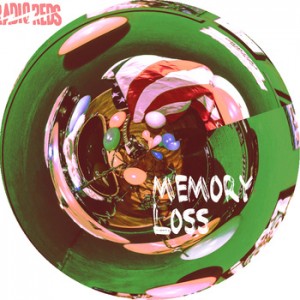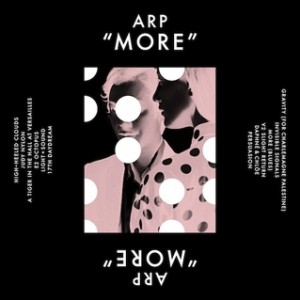
I absolutely love The Menzingers for their striking combination of tough vocals, melodic pop-punk chops, and intriguing lyrics. Whenever I find echoes of their work in bands, I jump on those releases. The Radio Reds’ Memory Loss hits all three of The Menzingers’ categories. Opener “Moloch” combines anthemic, soaring melodies with hard-hitting lyrics about the effects of war. The rest of the album traffics in more introspective, poetic material about interpersonal conflict, but “Moloch” is a blistering condemnation of the American treatment of veterans. Coming from a military family, it resonated hard.
Vocalist Stephen (no last name provided) keeps a tough edge on his vocals throughout the album, snarling a bit without turning the lines into yelling. (Don’t worry, there are some yelling sections for bros and girls in the pit: “Southern Belle,” “The Artist.”) This creates a nice tension that meshes neatly with the tension between the melodic sections of the tracks and the mash-those-chords breakdowns. The Radio Reds know how to balance the songwriting so that neither side of their songwriting style gets slighted. There are extremes, as “The Artist” is a furious street-punk endeavor that–enigmatically but excellently–includes horn in a third-wave ska fashion; “Let It Show” has the old-school pop-punk drumming style (always welcome in this corner), screamed vocals, and some metal overtones in the guitar work. On the other end, “Interlude” is just that, in fine, morose Brand New style. The horns reprise wonderfully, in a jazzier mode this time.
The Radio Reds have a lot going on in Memory Loss. They’re refining their own voice in the punk community, as well as tinkering with horns and quieter tunes (“Knife”) for variation. I look forward to seeing where The Radio Reds go from here, as Memory Loss is an engaging, intriguing listen for fans of The Menzingers, Titus Andronicus, The Gaslight Anthem, and the like.
—

Post-rock is about as avant-garde as I get, with rare exceptions. But ARP caught my attention with music that stretches the boundaries of pop music to the point that “Gravity (For Charlemagne Palestine)” sounds very much like strings-fronted post-rock. MORE is a weird trip through perky, charming music as thought through by a musician very interested in the deconstruction and reconstruction of sounds. “Invisible Signals,” the interlude following “Gravity,” is a spun-dial clip of radio found sounds: it leads directly into “More (Blues),” which is an Otis Redding-style blues/Motown/soul song complete with horns. ARP’s low tenor/high baritone voice fit nicely in the unexpected genre, and both arrangement and melody sound great.
It’s that sort of weird back alley that ARP is interested in on MORE, leading to the spaced-out intro of the harpsichord-driven “A Tiger in the Hall at Versailles” and a two-minute clip of nature sounds called “17th Daydream.” “V2 Slight Return” is a minute-long guitar experiment. “Persuasion” is a six-minute straight-ahead instrumental rock song. The sharp, clear production holds things together as well as it can, but your willingness to follow an experimenter where his trails and trials lead him is going to be the main feature in your enjoyment (or lack thereof) of ARP’s MORE. That, and whether you like optmistic post-rock. I enjoyed the album for its unique perspective, but this is certainly a “maybe not for everyone” release.